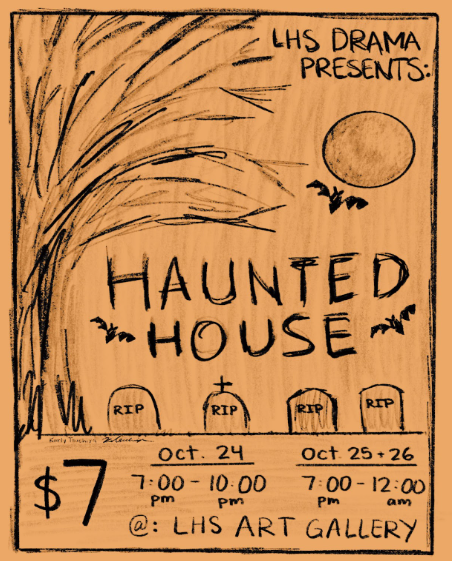STOCKTON – On February 21, 2020, Alexandra Ashley Hughes, artistically known as Allie X, released her second studio album titled Cape God, a 12-track electro-pop project infused with synth and avant-pop elements. This album is a departure from Hughes’s previous works that heavily took inspiration from 80s synth pop. This time around Hughes, approaches this project with more modern pop elements with 80s synth-pop elements and songs like Life of the Party.
Hughes’ Cape God is a concept album. The project’s writing takes inspiration from a 2015 HBO documentary, Heroin: Cape Cod, USA, about the effects of the opioid crisis on young people who live seemingly idealistic lives in the Cape Cod area of Massachusetts. Songs like Devil I Know, Sarah Come Home, Life of the Party, and Madame X lean heavily into the concept of the album as well as the documentary.
In Pitchfork’s review of the album, they described it as the story of a “…a fictionalized shoreline town where decadence is fueled by deep-rooted melancholia. (Pitchfork)”
In the opening track of the album, Fresh Laundry, Hughes sings softly, sometimes layering her vocals, over a minimalistic beat guided by drums/808s and synths. The song’s meaning is simply about longing for something you can’t have. Hughes uses wanting to be “near fresh laundry” as a metaphor for longing for more; she wants to be near fresh laundry in order to feel taken care of by a parental figure in her life.
Cape God’s second track, Devil I Know, starts off with an acoustic stringed instrumental in the verse before shifting to a more dramatic and orchestral instrumental in the verse. The song has two meanings; the first leaning into the documentary that inspired the album’s concept, focusing on an individual battling their inner demons and struggling with an addiction, whether they’re addicted to a person, a feeling, or even a substance is not disclosed within the song. The second meaning tells the story of a relationship in which the narrator is unhappy being in but stays because they believe it’s better to stick to what you know than risk something worse.
Track three on the album, Regulars, is the album’s first “traditional” pop song, with the return of the acoustic guitar (which is a recurring theme within the album) but with the addition of drums that somewhat simulate a clapping sound. The instrumental, combined with Hughes’ signature airy vocals make for a “carefree” and “beach-y” sound. According to Hughes, Regulars is about finally feeling like a part of society when you’ve been nothing but an outsider your entire life, fitting in where it’s clear you never will.
Sarah Come Home, Cape God’s fourth track, opens with a harp-like sound accompanied by whistling, paired with Hughes’ lower register that transitions into her normal airy vocals with layered background vocals in the post-chorus creating a chant-like rhythm. Lyrically, Sarah Come Home is about helping a friend find themselves after “losing” themselves. Hughes uses the metaphor of a friend going missing to signify them losing themselves and the narrator begging for their return to signify them attempting to help their friend.
The fifth track on Cape God, Rings a Bell, has a smooth- almost jazzy- instrumental lead by bells, a deep bass, and a subtle drum, paired once again with airy vocals. Hughes herself describes the song as being about “…nostalgia and infatuation, written from the perspective of somebody for the first time and feeling a hopefulness and possibility it could go somewhere.”
Track six, June Gloom, is similar to Rings a Bell with a more jazzy production but, this time with a bouncier bass and aggressive piano melody. June Gloom’s meaning is a little more personal to Hughes and strays away from the concept of the album. The song is a sarcastic retelling of how Hughes has felt over the years battling an autoimmune disease, watching others have fun while she’s confined to her room, forced to make fun of her own situation.
Love Me Wrong, Cape God’s seventh track, is a duet with Troye Sivan over another minimalistic beat that becomes fuller as the song progresses, eventually ending in a cacophony of sound. The song truly showcases Hughes’ vocal range with her singing in both her lower range as well as her whistle register. Put simply, Love Me Wrong is about being misunderstood by those who are meant to be closest to you, your family. It’s about knowing that they love you, not for you, but for the person they envision you to be.
Track eight on the album, Super Duper Party People, is probably the most upbeat “party song” on the record. The instrumental features a throbbing bass with clapping overtop with hauntingly low, droning vocals in the chorus, making the song seem almost ominous. Super Duper Party People is an unintentional commentary and critique of party culture, with the song itself having been a joke shared between Hughes and her boyfriend. The song gives an almost whimsical description of the party and the slow descent into madness narrated by the “party people”, with the bridge repeating the phrase “Don’t stop the music/I don’t want to lose it” basically implying that if the “party people” stop partying, they’ll lose their minds.
Track nine, Suzie Save Your Love, is another duet, this time with singer-songwriter Mitski Miyawaki-Laycock. The song is smooth and swingy and smooth- much like Rings a Bell and June Gloom – with Hughes and Miyawaki perfectly harmonizing to the point of being unable to differentiate the artists in the song. Suzie Save Your Love is a conceptual song about a person (narrator) who’s close friends with a girl named Suzie who is dating a guy named Marshall who treats Suzie poorl., In the song, the narrator is pleading for Suzie to save her love for someone like the narrator.
Life of the Party is another “party song” with doowop-esque snapping layered over an almost country-like drum and bass line in the verses that transition into a throbbing EDM bass melody, reminiscent of early 2010s club music combined with the haunting delivery of Hughes’s signature high-pitched vocals. The lyrics of Life of the Party are an extreme juxtaposition of the instrumental with the song being about dark and traumatic events that happen at the party which has been a motif in the previous two songs. The song serves as the narrator reflecting on the previous night of public humiliation and their “friends” watching it happen.
The eleventh track on Cape God, Madame X, is a dark baroque/orchestral song, with a cacophony of string instruments arranged in a beautifully devastated way paired with Hughes soft, airy vocals. Madame X takes the most inspiration from the HBO documentary, with the song being about battling with a substance addiction and asking the substance (Madame X) to take everything from them for them to be together.
The final track, Learning In Public, has an instrumental built completely off of clapping reminiscent of a children’s game (pattycake-esque). In this song, Hughes sings about having to learn about what it means to be a functioning human while also being in the public eye and making mistakes within the public eye and learning to be okay with that fact.
All in all, Hughes was able to craft an album that followed a concept while also feeling separated from the concept in a way that didn’t feel disconnected. Sonically, this album feels like a collection of songs that would be performed either late at night in a dimly lit bar or midday in the middle of a lush green park. There is a balance of soft, airy, and whimsical elements as well as dark, ominous and, boding elements that work together to create an amazingly dark pop record.
Favorite Song(s) – Devil I Know, Regulars, Rings a Bell, June Gloom, Love Me Wrong, Super Duper Party People, Life of the Party
Least Favorite Song(s) – Learning In Public
Album Rating – 8.9/10









